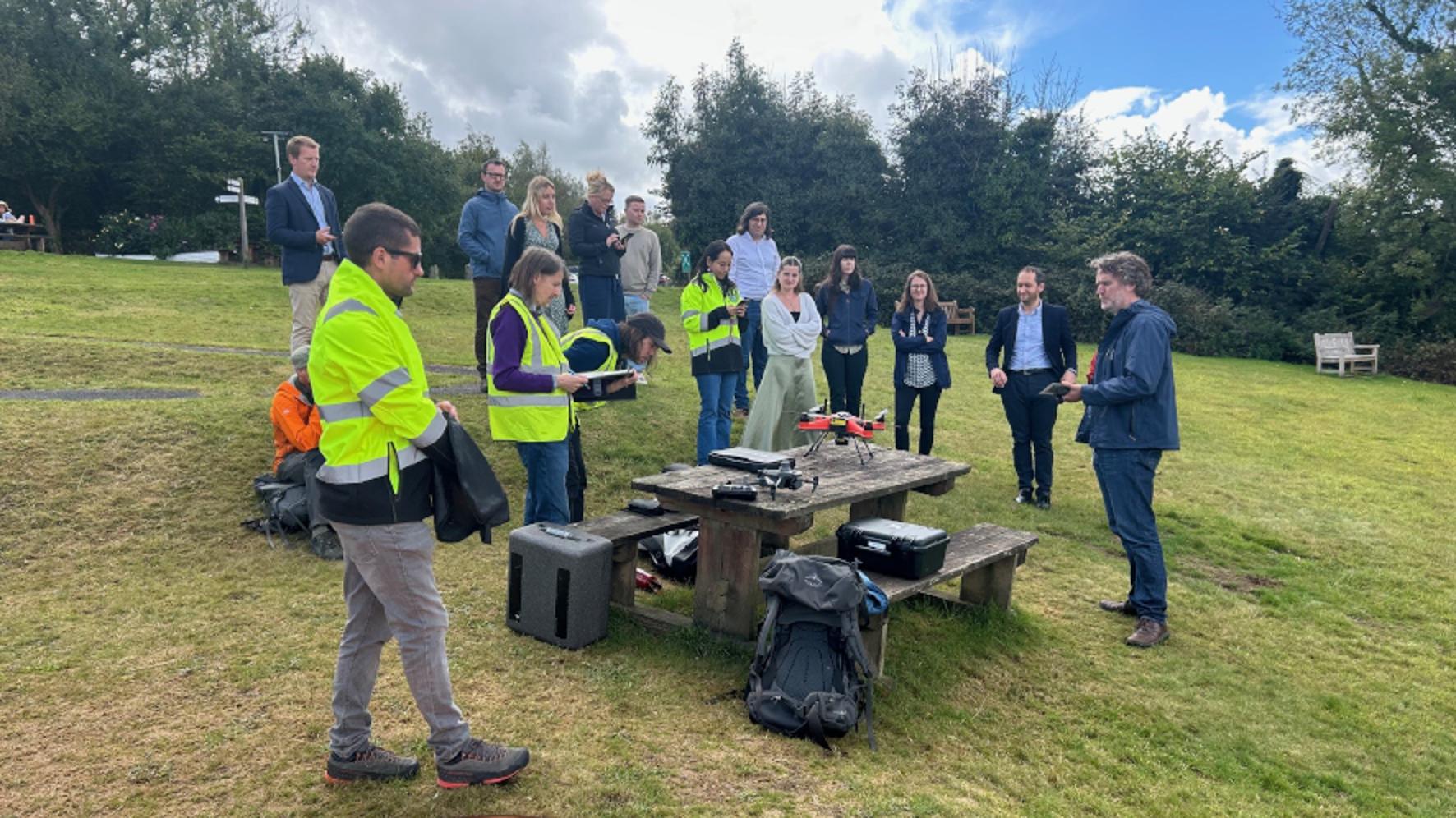A pioneering new project that will harness cutting-edge technology to develop tools to predict and manage harmful algal blooms (HABS) before they grow has launched.
South West Water is working in partnership with the University of Exeter, Plymouth Marine Laboratory, South West Lakes Trust, and other water companies and collaborators as part of the PEDAL project to address the growing challenge HABs pose to the water sector across the UK.
HABs occur naturally when algae grow rapidly in water, affecting reservoirs, lakes, and rivers. These blooms make water harder to treat, harm fish and wildlife, and reduce access for recreation. With climate change and pollution increasing their frequency, early detection and prevention has never been more critical.
Over the next three years, the PEDAL team will develop the UK’s first advanced digital twin system for HABs, combining data from satellites, drones, in-situ sensors, laboratory testing, and even local community input through citizen science to build an early warning system for algal blooms.
Using artificial intelligence and advanced modelling, the system will forecast blooms, allowing water companies to intervene sooner to protect supplies.
The project builds on South West Water’s joint initiative with the University of Exeter - the Centre for Resilience in Environment, Water and Waste (CREWW), and strengthens cross-sector collaboration on water innovation, supported by the Ofwat Innovation Fund.
South West Water will lead the delivery of the £2 million project alongside academic and industry partners. Over the next three years, PEDAL will provide significant benefits across the water sector, for customers, and for the wider community. Water companies will gain access to improved predictive tools and data-driven insights, helping to reduce operational costs and plan interventions more effectively.
Customers will benefit from cleaner water, fewer supply disruptions, and lower treatment costs. At the same time, communities and the environment will see stronger public health protection, healthier aquatic ecosystems, and opportunities to get involved through citizen science initiatives.
